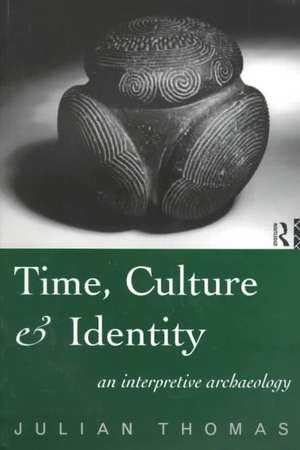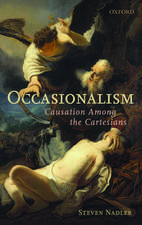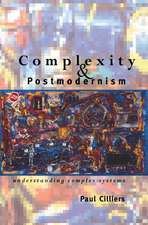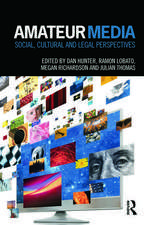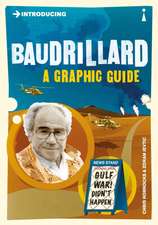Time, Culture and Identity: An Interpretative Archaeology: Material Cultures
Autor Julian Thomasen Limba Engleză Paperback – 29 oct 1998
* nature and culture
* mind and body
* object and subject.
Drawing on the philosophy of Martin Heidegger, Julian Thomas develops a way of writing about the past in which time is seen as central to the emergence of the identities of people and objects.
Preț: 367.07 lei
Nou
Puncte Express: 551
Preț estimativ în valută:
70.25€ • 73.07$ • 57.99£
70.25€ • 73.07$ • 57.99£
Carte tipărită la comandă
Livrare economică 14-28 aprilie
Preluare comenzi: 021 569.72.76
Specificații
ISBN-13: 9780415197878
ISBN-10: 0415197872
Pagini: 288
Dimensiuni: 156 x 234 x 15 mm
Greutate: 0.39 kg
Ediția:Revised
Editura: Taylor & Francis
Colecția Routledge
Seria Material Cultures
Locul publicării:Oxford, United Kingdom
ISBN-10: 0415197872
Pagini: 288
Dimensiuni: 156 x 234 x 15 mm
Greutate: 0.39 kg
Ediția:Revised
Editura: Taylor & Francis
Colecția Routledge
Seria Material Cultures
Locul publicării:Oxford, United Kingdom
Public țintă
Postgraduate and UndergraduateNotă biografică
Julian Thomas is Lecturer in Archaeology at Southampton University. He is the Secretary of the World Archaeological Congress. His previous publications include Rethinking the Neolithic(1991) and numerous articles on European prehistory and archaeological theory.
Recenzii
'[It is] of profound importance ... This book is a good one to start a reader tapping into the thinking currently taking place.' - The LeyHunter Journal
'...this book may well convert some previously 'doubting Thomas' to post-processualism.' - History Review
'...this book may well convert some previously 'doubting Thomas' to post-processualism.' - History Review
Cuprins
Introduction PART ONE: A PHENOMENOLOGICAL ARCHAEOLOGY? 1 After Descartes: Archaeology, culture and nature 2 Time and the subject 3 Material things and their temporality 4 Place and temporality PART TWO: THREE HISTORIES 5 The descent of the British Neolithic 6 Later Neolithic Britain: Artefacts with personalities 7 Time, place and tradition: Mount Pleasant Afterword: Archaeology and meaning
Descriere
Drawing on the work of Heidegger, Thomas develops a way of writing about the past in which time is seen as central to the emerging identities of people and things, and the temporal structures of humans, places and artefacts as radically similar.
